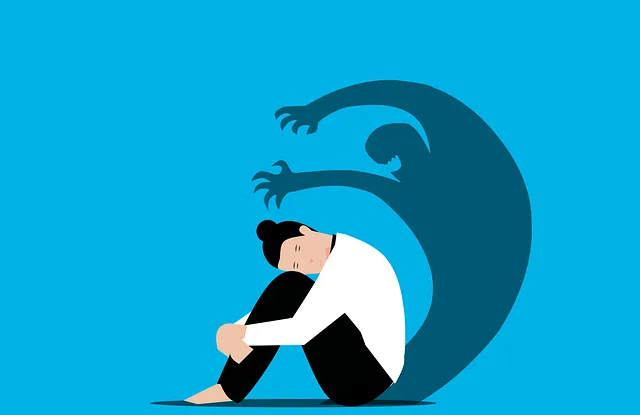Longmont Kaiser Permanente offers comprehensive mental health services, focusing on building resilient coping skills through self-awareness exercises, emotional intelligence development, and mindfulness practices. Their tailored programs, crisis support, and trauma healing resources empower individuals to navigate life's challenges effectively, utilizing their dedicated mental health number for easy access to specialized care.
In today’s fast-paced world, coping skills development is more vital than ever for maintaining mental well-being. This comprehensive guide explores essential strategies through which individuals can navigate stress and adversity. From understanding the foundational role of coping skills to identifying personal stressors and building a toolkit of effective strategies, we provide insights tailored to Longmont Kaiser Permanente members seeking mental health support. Discover resources designed to foster growth and resilience, including the Longmont Kaiser Permanente mental health number for easy access to professional guidance.
- Understanding Coping Skills: The Foundation of Mental Well-being
- Identifying Personal Stressors and Triggers
- Building a Toolkit for Effective Coping Strategies
- Longmont Kaiser Permanente Mental Health Support: Resources for Growth
Understanding Coping Skills: The Foundation of Mental Well-being

Coping skills are the strategies we use to navigate life’s challenges and maintain mental wellness. They serve as our personal tools for managing stress, overcoming adversity, and cultivating resilience. At Longmont Kaiser Permanente, our mental health services offer valuable resources and guidance, such as crisis intervention support, burnout prevention techniques, and tailored coping skill development programs.
Understanding these skills is crucial in fostering overall mental wellness. By learning to recognize and manage our emotional responses, we can effectively cope with life’s ups and downs. This foundation enables us to respond rather than react in stressful situations, promoting better mental health outcomes. Whether it’s through relaxation techniques, mindfulness practices, or seeking professional support, developing robust coping skills is an investment in our long-term well-being.
Identifying Personal Stressors and Triggers

Identifying personal stressors and triggers is a fundamental step in coping skills development. This process begins with introspection—taking time to reflect on one’s thoughts, feelings, and behaviors. Individuals can start by acknowledging what specifically causes them stress or activates negative emotions. For instance, certain situations at work, relationships, financial concerns, or even daily routines might contribute to heightened anxiety or distress. Longmont Kaiser Permanente mental health services offer valuable resources for navigating this step, providing guidance and support tailored to individual needs.
Understanding one’s unique triggers is crucial because it enables people to develop targeted coping strategies. Emotional Intelligence plays a significant role here, as individuals learn to recognize and manage their emotional responses. Moreover, analyzing these triggers can inform advocacy efforts in Mental Health Policy Analysis and Advocacy, ensuring that policies reflect the diverse needs of communities. Additionally, focusing on Self-Esteem Improvement can empower individuals to better cope with stressors, fostering resilience and a positive mindset.
Building a Toolkit for Effective Coping Strategies

Developing a personal toolkit filled with effective coping strategies is a powerful way to navigate life’s challenges, and Longmont Kaiser Permanente mental health services offer valuable resources for this journey. Starting with self-awareness exercises can be transformative; recognizing your emotions and triggers is the first step towards managing them. This heightened awareness allows individuals to identify what sets their stress levels ablaze and enables them to respond rather than react.
By incorporating various coping skills, such as mindfulness practices, into daily routines, one can cultivate resilience against mental health issues like depression. The Longmont Kaiser Permanente mental health number serves as a direct line to Trauma Support Services, providing crucial assistance for those who have experienced traumatic events. These services are designed to empower individuals to rebuild and heal, offering tools tailored to their unique needs.
Longmont Kaiser Permanente Mental Health Support: Resources for Growth

Longmont Kaiser Permanente offers a robust Mental Health Support system designed to empower individuals on their journey towards growth and resilience. Their dedicated team provides a range of services tailored to meet diverse needs, from individual therapy sessions to group support programs. By engaging in various activities and workshops, patients can develop essential coping skills and communication strategies, which are crucial for managing mental health effectively.
Through these initiatives, Longmont Kaiser Permanente aims to foster an environment free from the hindrances of mental illness stigma. They recognize that open discussions and education are powerful tools for reducing societal barriers. By offering accessible resources and a supportive network, they encourage those facing challenges to take proactive steps towards healing and self-improvement, ultimately enhancing their overall well-being.
Coping skills development is an empowering journey towards improved mental well-being. By understanding the importance of these skills, identifying personal stressors, and building a toolkit of effective strategies, individuals can navigate life’s challenges with resilience. Longmont Kaiser Permanente offers valuable resources, such as their mental health support services, to guide folks in this process. Remember that developing strong coping mechanisms is an ongoing practice, and reaching out for help when needed is a sign of strength. Contact the Longmont Kaiser Permanente mental health number for guidance and support on your path to enhanced emotional well-being.






